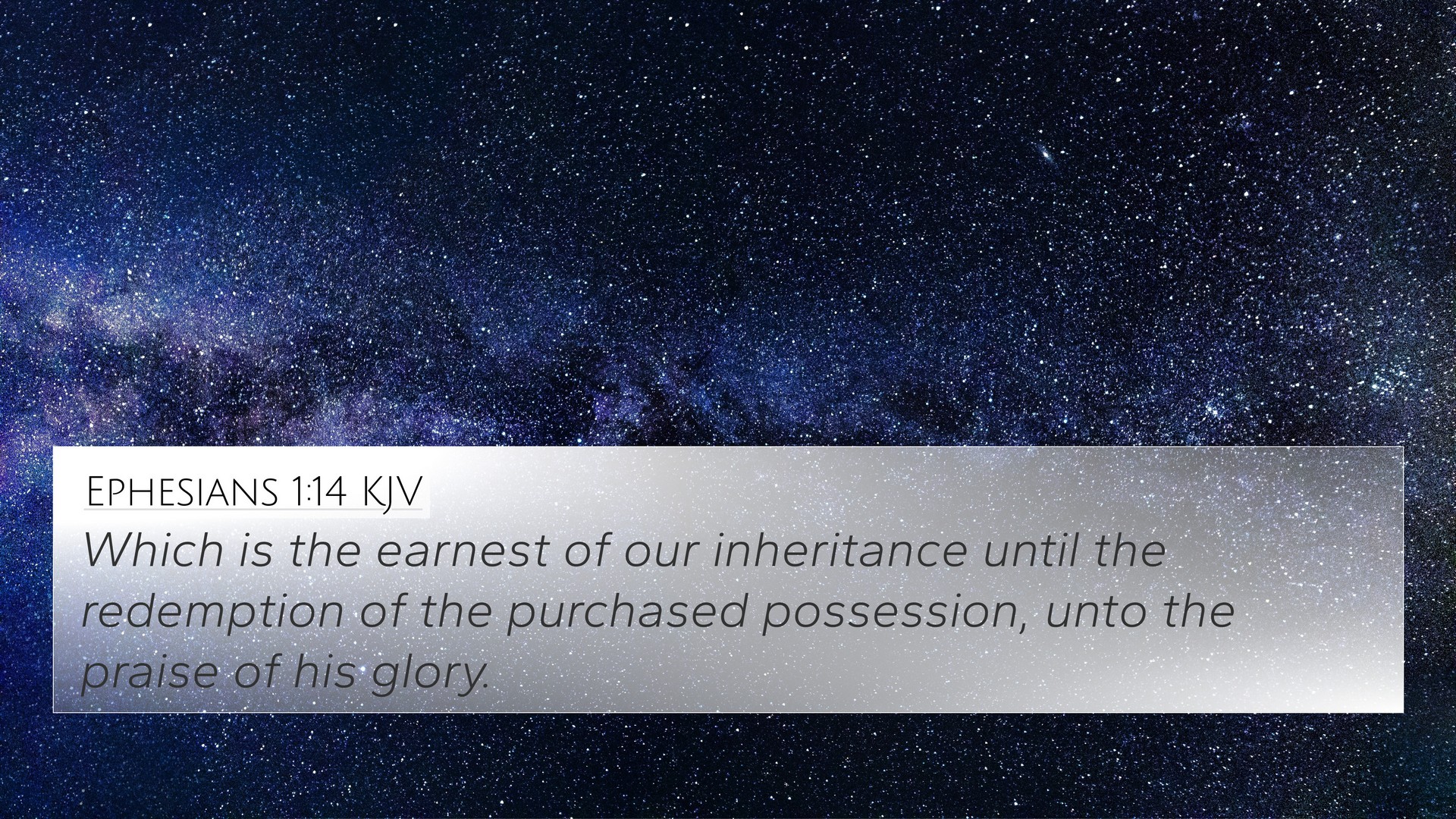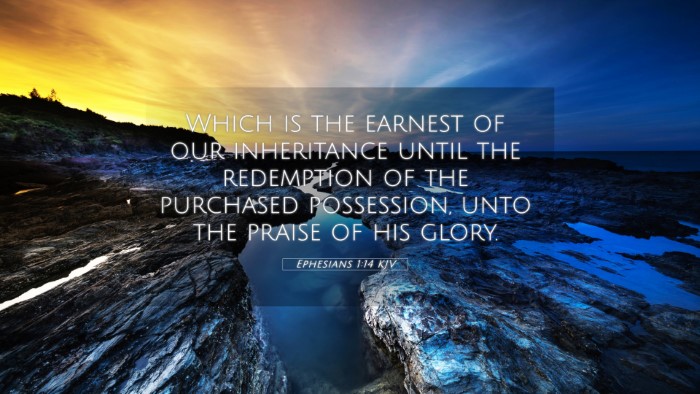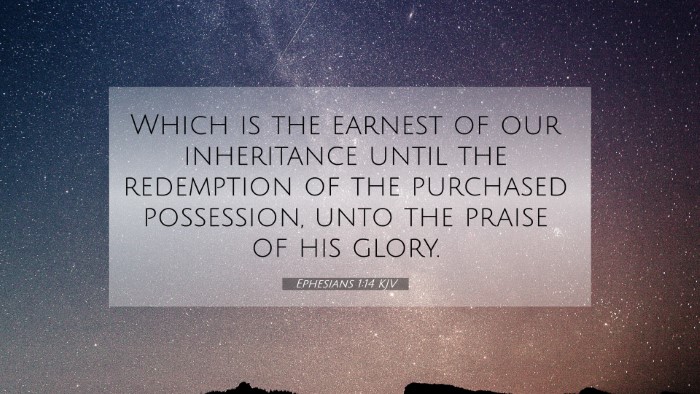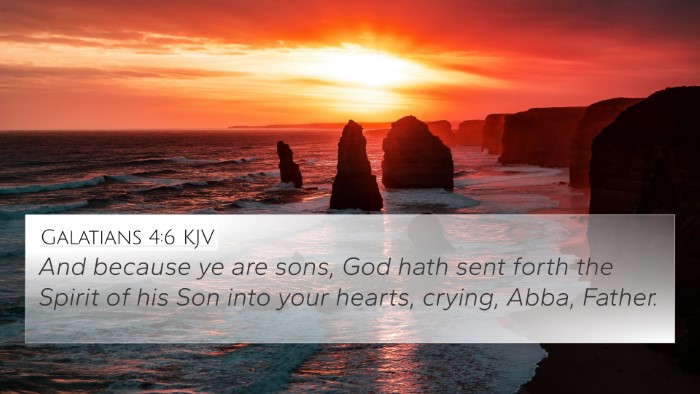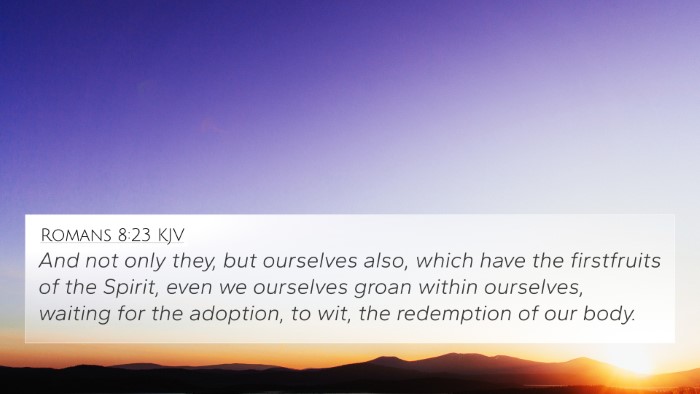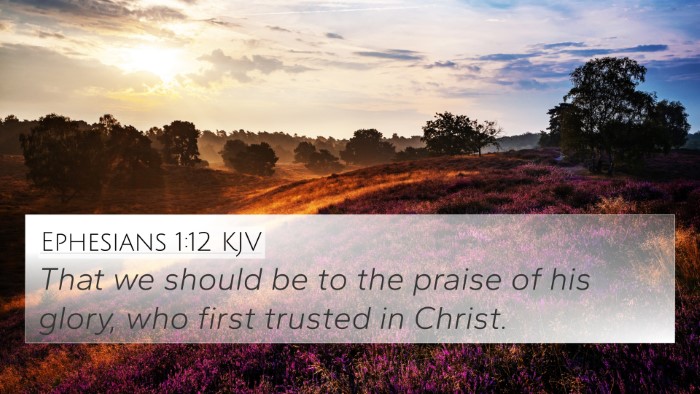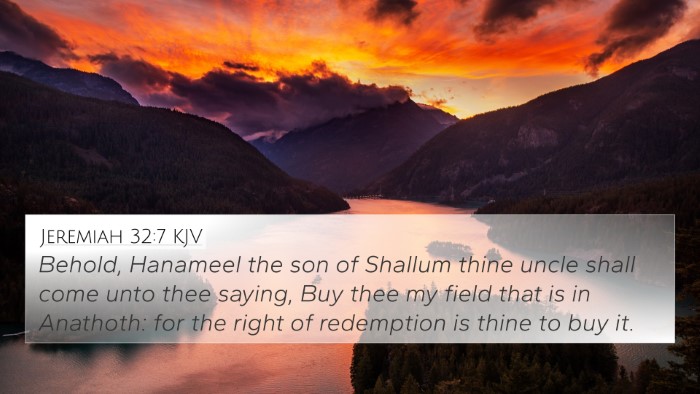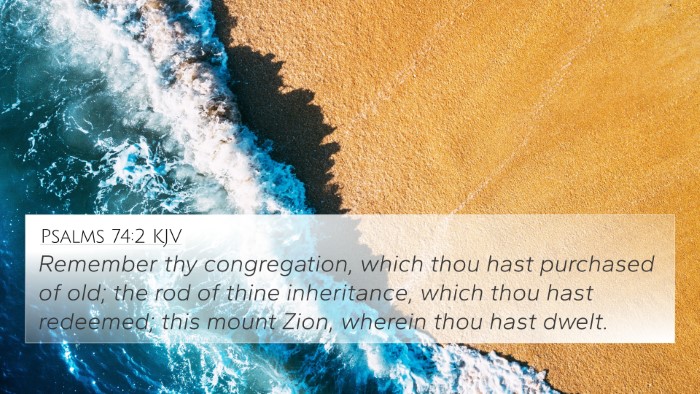Ephesians 1:14 - Meaning and Interpretation
Ephesians 1:14 states, "Which is the earnest of our inheritance until the redemption of the purchased possession, unto the praise of his glory." This verse emphasizes the assurance and the security believers have through the Holy Spirit, who is described here as the "earnest" or deposit of our future inheritance in Christ.
Summary of Key Insights
- Assurance of Inheritance: The verse highlights the role of the Holy Spirit as a guarantee of the proper inheritance that awaits believers, reinforcing their identity as children of God.
- Redemption Theme: This scripture connects to the broader biblical narrative concerning the redemption of God's people, indicating a future fulfillment that lies ahead.
- Glory of God: It emphasizes the orientation of this redemption towards the glory of God, suggesting that the ultimate purpose of salvation and inheritance is to bring honor to Him.
- Continuity in God's Plan: Ephesians 1:14 signifies the continuity of God's redemptive plan that began in the Old Testament and culminates in the New Testament with Christ’s work.
Biblical Cross References
This verse is interconnected with several other scriptures that illuminate its meaning:
- 2 Corinthians 1:22: "Who hath also sealed us, and given the earnest of the Spirit in our hearts." This again underscores the sealing work of the Holy Spirit as a promise of future inheritance.
- Romans 8:23: "And not only they, but ourselves also, which have the firstfruits of the Spirit, even we ourselves groan within ourselves, waiting for the adoption, to wit, the redemption of our body." This verse reinforces the idea of waiting for full redemption.
- Romans 8:17: "And if children, then heirs; heirs of God, and joint-heirs with Christ." Here, the theme of being heirs to God's kingdom is echoed, enhancing the meaning of inheritance.
- Ephesians 4:30: "And grieve not the holy Spirit of God, whereby ye are sealed unto the day of redemption." This reinforces the sealing aspect of the Holy Spirit, marking believers for future redemption.
- Colossians 3:24: "Knowing that of the Lord ye shall receive the reward of the inheritance: for ye serve the Lord Christ." This emphasizes the inheritance awaiting believers.
- 1 Peter 1:4: "To an inheritance incorruptible, and undefiled, and that fadeth not away, reserved in heaven for you." It vividly describes the nature of the believers' inheritance.
- Galatians 4:7: "Wherefore thou art no more a servant, but a son; and if a son, then an heir of God through Christ." This reinforces the believer's identity as children of God and thus rightful heirs.
Connections Between Bible Verses
The thematic connections within the scriptures present a cohesive narrative regarding the inheritance and redemption themes prevalent throughout the Bible:
- Linking Old and New Testament: The inheritance promised to believers finds its roots in the patriarchal blessings of the Old Testament as seen in Genesis, where God promises land and lineage to Abraham and his descendants.
- Comparison between the Witness of Prophets and Apostolic Teachings: The fulfillment of Old Testament promises through the New Testament writings shows how Christ's work consummated what was initiated by the prophets.
- Inter-Biblical Dialogue: Bible scholars often explore how New Testament authors interpret and cite Old Testament promises about inheritance and redemption as fulfilled in Christ.
Understanding the Context
To grasp the significance of Ephesians 1:14 fully, one must consider the broader context of Paul's letter to the Ephesians:
- Theological Framework: Paul discusses the foundations of Christian faith, emphasizing grace, redemption, and the unity of the body of Christ.
- Pastoral Purpose: The Apostle's intention was to encourage the Ephesian believers by reassuring them of their standing in Christ and the hope they possess.
- Community Identity: Understanding this verse helps believers see their collective identity as the church, 'the called-out ones,' and their shared future inheritance with one another.
Tools for Bible Cross-Referencing
For further study and to explore these connections, consider utilizing helpful tools:
- Bible Concordance: This tool can aid in locating verses by keywords, enhancing your understanding of related scriptures.
- Bible Cross-Reference Guide: Guides provide structured references helping in identifying Bible verse parallels.
- Bible Reference Resources: Online and print resources can be valuable in discovering inter-Biblical dialogue.
Conclusion
In essence, Ephesians 1:14 serves as a profound affirmation of the believer's hope and security in Christ, linking them to a divine lineage characterized by inheritance and redemption—all intended for the glory of God. By cross-referencing this verse with others, one can uncover a rich tapestry of biblical truth that encourages and fortifies the faith journey.
